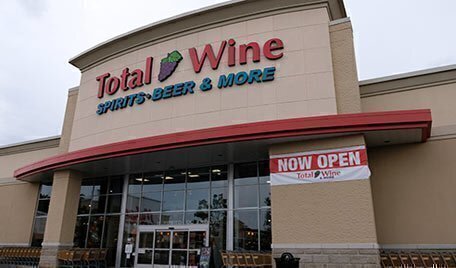It’s rare for the Supreme Court to take new cases about the 21st Amendment, which ended Prohibition. But sometime next year, the Justices will consider the fate of interstate retail wine sales in a new age.
 In late September, the Court granted arguments in Tennessee Wine & Spirits Retailers Association v. Byrd. As you’ll recall from history class, the 21st Amendment effectively repealed the 18th Amendment’s national ban on “the manufacture, sale, or transportation of intoxicating liquours.” Instead, the 21st Amendment’s Section II gave each state the ability to regulate the “transportation or importation … for delivery or use therein of intoxicating liquors.”
In late September, the Court granted arguments in Tennessee Wine & Spirits Retailers Association v. Byrd. As you’ll recall from history class, the 21st Amendment effectively repealed the 18th Amendment’s national ban on “the manufacture, sale, or transportation of intoxicating liquours.” Instead, the 21st Amendment’s Section II gave each state the ability to regulate the “transportation or importation … for delivery or use therein of intoxicating liquors.”
In our Interactive Constitution, scholars Robert P. George and David A.J. Richards explained the significance of Section II. “Its second section has been interpreted by the courts and others as giving broad authority over the regulation of alcoholic beverages to the states and limiting the power of the national government to intrude upon state alcohol beverage control policies,” said George and Richards.
The scholars added that “lawsuits involving this part of the 21st Amendment often involve questions about ‘the power of Congress ‘to regulate commerce . . . among the several states . . . . under Article I, Section 8 of the Constitution. The courts have held that the Amendment means that the power of Congress to displace state regulatory policies is narrower with respect to alcohol than it is to other goods and services; but precisely how much narrower has not been fully established.”
In Tennessee Wine & Spirits Retailers Association v. Byrd, the question is whether “the amendment empowers States, consistent with the dormant Commerce Clause, to regulate liquor sales by granting retail or wholesale licenses only to individuals or entities that have resided in-state for a specified time.”
The concept behind the dormant Commerce Clause is that states can’t discriminate against out-of-state products in a way that favors in-state products. In the last major 21st Amendment case to come to the Supreme Court, Granholm v. Heald (2005), Justice Anthony Kennedy drew this distinction regarding sales from out-of-state wineries to Michigan and New York. The majority found the state laws there gave “in-state wineries a competitive advantage over wineries located beyond the States' borders.” In his dissent, Justice John Paul Stevens said the dormant Commerce Clause didn’t apply in the Granholm case because “ever since the adoption of the Eighteenth Amendment and the Twenty-first Amendment, our Constitution has placed commerce in alcoholic beverages in a special category.”
Stevens cited a 1936 opinion from Justice Louis Brandeis on the same question, State Bd. of Equalization of Cal. v. Young's Market Co. "The plaintiffs ask us … to construe the Amendment as saying, in effect: The State may prohibit the importation of intoxicating liquors provided it prohibits the manufacture and sale within its borders; but if it permits such manufacture and sale, it must let imported liquors compete with the domestic on equal terms. To say that, would involve not a construction of the Amendment, but a rewriting of it,” Brandeis wrote.
The Tennessee Wine & Spirits Retailers Association is appealing a federal appeals court decision that struck down Tennessee’s requirement that liquor retailers reside in the state for at least two years before applying for a sales license. They also claim 21 other states have similar requirements.
But the Sixth Circuit Appeals Court said the residency requirement violates the dormant Commerce Clause. The petitioners argue that the ruling conflicts with other circuit court rulings and “leaves next to no continuing role for Section 2 of the Twenty-first Amendment’s grant of authority to the States.”
In response, Total Wine, the interstate liquor retailer contesting the residency requirement, says the law discriminates against it as a corporation because it is based in Maryland, and all of its directors and shareholders would need to move to Tennessee to comply with the law.
“The bizarre durational residency requirements enacted by Tennessee are blatantly protectionist, have no legitimate regulatory purpose, and cannot be squared with decades of this Court’s Commerce Clause jurisprudence, including the Court’s decision in Granholm,” it argues.
For the wine industry, in particular, one question it will be following isn’t mentioned by either side in the case: Will the Supreme Court’s decision allow out-of-state retailers to sell wine on the Internet, instead of a physical store, directly to in-state residents? (Last October, the New York Times reported that only 14 states easily allow direct out-of-state retail wine sales to consumers over the Internet.)
In late September, a federal court based in Michigan ruled on a similar question in Lebamoff Enterprises v. Snyder, stating that impeding out-of-state Internet wine retailer sales in Michigan violated the dormant Commerce Clause.
Scott Bomboy is the editor in chief of the National Constitution Center.







